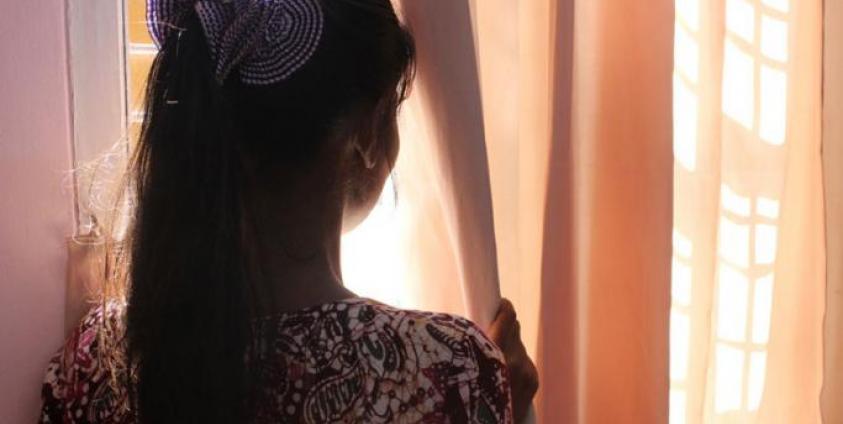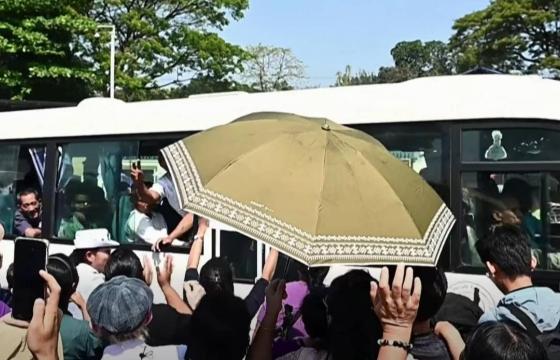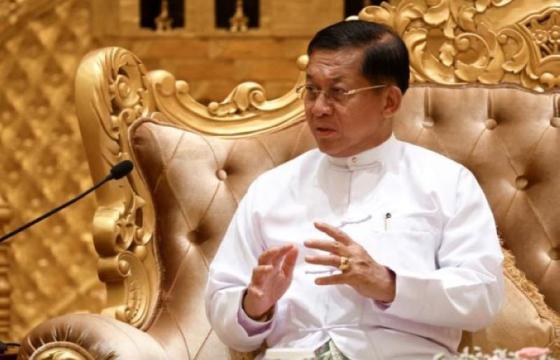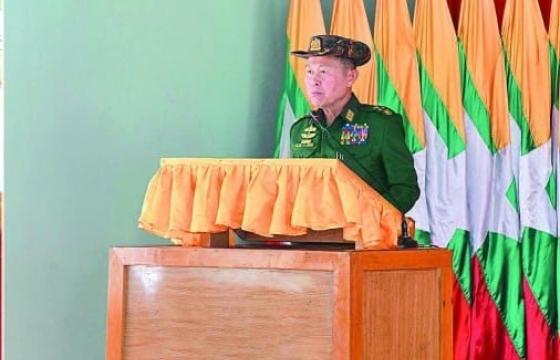Chuqiao Chen — The Sex worker community and NGOs have desperately called for amendments to Myanmar’s 70-year-old antiquated prostitution law.
Under the law, females are specifically targeted, and women who are prostitutes or pimps will be criminalised and face up to 3-years in prison.
Kyaw Zayar Swe, the project manager of the network Sex Workers in Myanmar (SWIM) expressed his concern over the oppression and exploitation the law has brought to sex workers so far.
‘There are other NGOs who are working on HIV issues and peer-led HIV interventions for sex workers, but we prioritise the amendment of current law and policy, that’s the most important thing.’, Kyaw Zayar Swe said.
As a sex worker himself, Kyaw Zayar Swe has been advocating for an amendment of 1949 Act in order to free sex workers from being discriminated and exploited by society.
He said the criminalised nature of the law leaves sex workers very vulnerable with police, clients, and society.
‘Pimps would always take advantage of the law because they know the sex work itself is illegal. So they would take half of the money every time we get paid by a client.’, said Khin Nyein New, a member in SWIM, who is a sex worker as well.
‘They (pimps) also wouldn’t allow us to get sexual health checks or health services in a hospital, they wouldn’t let us leave the house if they find out we are going to the hospital.’, said Khin Nyein New.
Sex workers are also pressured by other institution such as police informants. Even though relations between police and the sex worker community is less intense now, there are still some uninformed staff, who call themselves ‘police informants’ who make use of the illegal status of sex workers in Myanmar.
Kaythi, the founder of Aids Myanmar Association (AMA) said informants would threaten sex workers to have free and condomless sex with them so they would not report them to police.
SWIM has been keen to push the prostitution law amendment, and some progress has been made.
In response to advocacy from NGOs such as SWIM and AMA, the government has drafted a bill on prostitution in order to protect sex workers. The handling of the case has been moved from the Ministry of Home Affairs to the Ministry of Social Welfare, in which sex workers will be better dealt with in a humane way.
Even though the illegal nature of sex work will not change in the drafted law, a more lenient measure of punishment towards sex workers has been adapted, Kyaw Zayar Swe said.
‘In the drafted law, the first time (sex workers) arrested, you sign and you can leave; for the second time, you have to pay a fine from 10000 to 15000 Kyat and then you can leave; the third time you will be sent to an educational centre; the fourth time you will be sentenced to prison, but the duration is shorter than the 1949 act requires.’, said Kyaw Zayar Swe.
There is also concern that the upcoming general election in 2020 would delay the onward movement of the bill.
Kaythi expressed her concern over the modified bill and whether the government has collected information that represents sex workers’ voices.
‘I mean, how many sex workers have they (government) talked to? How many sex workers have they engaged? A small number of sex workers, like, two of them can’t represent the sex worker community.’ Kaythi said, explaining that sex workers, especially those at ‘ground level’ who are socially and financially disadvantaged are hard to be reached out to.
Kaythi emphasized that only when sex work is decriminalised will sex workers be truly protected.
“People only see them doing sex work, selling their bodies. What they don’t see is that they earn the money by themselves to support their families, to support their children's education, to support their parents. People need to recognise sex work as a profession, it is just like another normal job,” she said.






